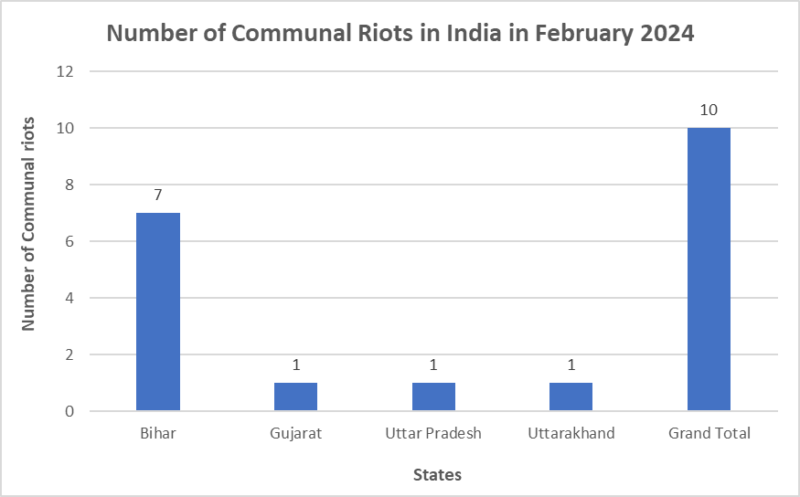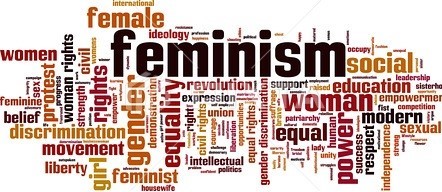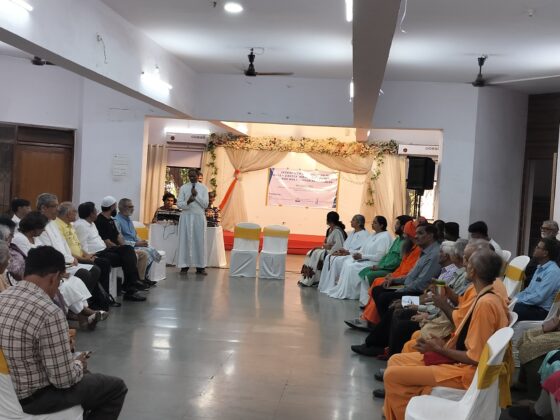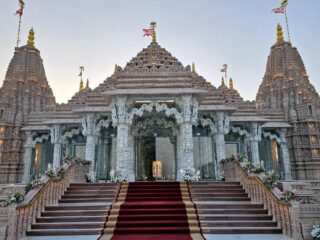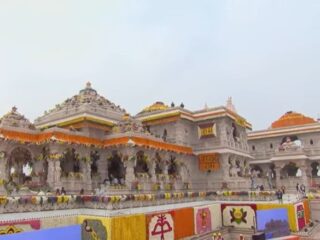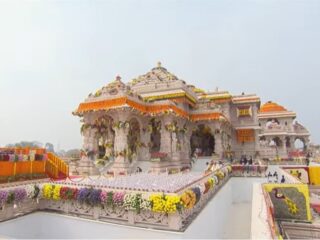CSSS Team
28/03/2024
The build up to the 18th Lok Sabha election witnessed communal churning in India. According to the monitoring of Centre for Study of Society and Secularism, in February alone, the media reported ten communal riots, nine minor and one major riot. The communal riots left over 153 injured and six dead. It appears that these communal riots were aimed at polarizing people along religious lines. Notably, all the ten communal riots took place in BJP ruled states. Along with communal riots, discriminatory laws targeting the freedom of religion of vulnerable groups were passed. One such law was the uniform civil code passed by Uttarakhand, one of the promises made by the BJP before 2019 elections.
Communal Riots:
Seven out of the total ten communal riots took place in the state of Bihar alone around the Saraswati idol immersion. These communal riots took place in north and east of Bihar- in Bhagalpur, Sitamarhi, Siwan, Darbhanga, Jamui, sheikhpura and Saharsa. 47 persons were injured in Bihar communal riots alone. According to the investigations of CSSS, religious processions in the recent past have used communal slurs and provocative slogans to target the Muslims and incite violence. Religious processions are increasingly used for asserting hegemony of Hindu religion.
The rest of the three communal riots took place in Haldwani in Uttarakhand, Bareilly in Uttar Pradesh and Vadodara in Gujarat. All the four states are ruled by BJP. These communal riots claimed six lives- all six deaths took place in Haldwani communal riots. Two out of these six persons who died were Muslims.
Bareilly in Uttar Pradesh on 9th February witnessed a communal riot when the followers of Islamic cleric and Ittehad-e-Millat Council chief Tauqeer Raza Khan took to the streets after he was detained for giving a call for “jail bharo” over the ongoing Gyanvapi dispute. Stones were pelted at people returning home after participating in a protest organised by Tauqeer Raza Khan in the Shamat Ganj area under Baradari police station limits. The police had to use minor force to disperse the crowd. Soon after the incident, a group attacked and injured two Hindu motorcyclists near the spot where the stone pelting occurred. 3 people were injured. Some motorcycles were vandalized.
|
Total Number of injured |
Total Number of Deaths |
Total Number of Arrested |
|
153 |
6 |
136 |
Another minor communal riot took place in Vadodara in the state of Gujarat. Communal riots took place when a mob of over 150 people assembled to protest against a social media post which was allegedly derogatory against Lord Ram and allegedly posted by one Sahid Patel. The police alleged that the Muslims started stone pelting when the accused was present at the Navapura police station. Three persons were injured and the police have caught 11 persons and 22 persons have been booked.
Major communal riot took place in Haldwani in Uttarakhand on 8th February. In strict sense this is not a communal riot where there was violence inflicted by one community over the other. In this communal riot, the Muslim community agitated due to the demolition of the Abdul Razzaq Zakariya Madrassa and Mariyam Mosque- which was sealed and subjudice, retaliated against the administration. The authorities alleged that the structures were illegal. The residents of Haldwani allegedly hurled petrol bombs and stones at the municipality workers. The police used excessive force, including indiscriminate firing and brutality during searches and detention. Six were killed and over 100 injured during police action. Over five persons were arrested including Patel.
Discriminatory Laws:
Apart from communal riots, there have been incidents of discriminatory legislations passed by the state which curbed the freedom of religion of Muslims and Christians. These laws aimed at privileging the Hindu religion and discriminate based on religious identity. For instance, Uttarakhand passed the controversial Uniform civil code Act which will be applicable to all religious communities in the matters of marriage, divorce, adoption, inheritance etc replacing personal laws that are in practice in India. The personal laws in practice in the rest of India ensures cultural autonomy to the diverse communities. However, with the Uniform Civil Code passed by the state of Uttarakhand has essentially drawn most provisions from Hindu laws and imposing it on diverse communities in a bid to homogenize and hegemonize.
In another instance of such policies, the Assam cabinet Assam Cabinet approved the Assam Healing (Prevention of Evil) Practices Bill, 2024, to address the issue of fraudulent magical healing practices in the name of treatment. The Bill prescribes imprisonment and fines for engaging in illegal practices under the guise of treatment or magic healing. This Bill was introduced on the unsubstantiated premise that Christian evangelists are converting adivasis as elaborated by CM Himanta Biswa Sarma in his statement. He said, “We want to curb evangelism in Assam and in this regard, the banning of healing is an important milestone. We are going to pilot this bill because we believe the religious status quo is very important for a proper balance. Let Muslims remain Muslims, Christians remain Christians, Hindus remain Hindus.” He had added that magical healing is “a dicey subject used to convert tribal people”.
Sarma also promised to bring UCC to Assam along the lines of Uttarakhand. Additionally, the Assam government repealed the Assam Muslim Marriage and Divorce Registration Act 1935. The Chief Minister argued that the decision had been taken to curb child marriage, stating that the Act has a provision that enables the marriage of brides and grooms below the ages of 18 and 21, respectively.
Uttarakhand also proposes to table a bill called, “Uttarakhand Public and Private Property Damage Recovery Bill”. The law if passed will make rioters accountable for damages to government and private property. This law comes in the backdrop of the communal riots triggered by demolition of the alleged illegal Mariyam Mosque and Abdul Razzaq Zakariya madrassa in Haldwani. The premise of this law as cited in other BJP ruled states where this law is operational is that Muslims are rioters and responsible for the damage to public and private property.
The Ministry of Minority Affairs instructed the closure of the Maulana Azad Education Foundation (MAEF) ‘at the earliest’ through a notice. The MAEF was meant for the upliftment of minority community members-Muslims, Christians, Sikhs, Buddhists, Parsis and Jains. Founded with the mission of promoting education among the marginalised sections of society, the Maulana Azad Education Foundation was funded by the Ministry of Minority Affairs. Closure of such scholarship to students from minority communities will adversely impact the educational prospects of such students.
The Chhattisgarh government is introducing in the coming days the “Chhattisgarh Prohibition of Unlawful Religious Conversion Bill” which mandates a person who wishes to convert to another religion to fill a form with personal details at least 60 days in advance and submit it to the District Magistrate. Additionally, following the conversion, a person will have to fill another declaration form within 60 days and present himself or herself before the DM for verification. Such laws tighten restrictions on individuals to convert out of their own free will. Such laws also intrude into personal choices of individuals to choose and practice faith.
In yet another bid to invisibilize the contribution of Islam and Mughal kings to Indian heritage, Uttar Pradesh Metro Rail Corporation (UPMRC) has changed the name of Jama Masjid metro station to Mankameshwar.
Hate Speeches:
According to the monitoring of CSSS, four major incidents of hate speeches were reported in the month of February. Three out of the four hate speeches were made by tall BJP leaders. Nitesh Rane, BJP MLA from Maharashtra on two occasions alleged without data or evidence that ‘land Jihad’ and ‘love jihad’ is taking place in Maharashtra. On one instance he accused that the electricity theft to the tune of INR 300 crores is funding terrorist activities in Malegaon. The judiciary had convicted right wing leader Pragya Thakur in the bomb blast case in Malegaon.
Nitesh Rane in Mumbai in another incident he blamed the BMC and MHADA officials for having facilitated “land jihad” by allowing “Rohingyas” to settle in Govandi and Mankhurd “illegally”. He threatened to demolish all mosques in Govandi and Mankhurd the area if MHADA didn’t demolish them. No effective action is taken against Rane who has a history of making hate speeches.
In another incident, one of the protestors in a rally led by Suvendhu Adhikari, BJP opposition leader in West Bengal called a senior IPS Sikh office as “Khalistani”. The protesters were on way to Sandeshkhali in West Bengal.
In a video emerging from Gujarat, Mufti Salman Azhari, religious leader from Mumbai made a provocative statement. He said, “abhi toh Karbala ka akhaari maidan baki hai, kuch der ki khamoshi hai fir kirane ayega, aaj kutto ka wakt hai kal hamara daur ayega”. His arrests has led to protests and communal riots in Vadodara.
Hate Crimes:
A family of three became targets of hate crimes when a mob of about 30 to 40 persons forced Asif Shaikh to say “Jai Shri Ram” in a train from Kankavali to Mumbai in Maharashtra in January. He was traveling with his wife and toddler daughter. The video of the attack on the family went viral. The mob threw hot tea at Asif’s daughter when Asif protested against their force.

